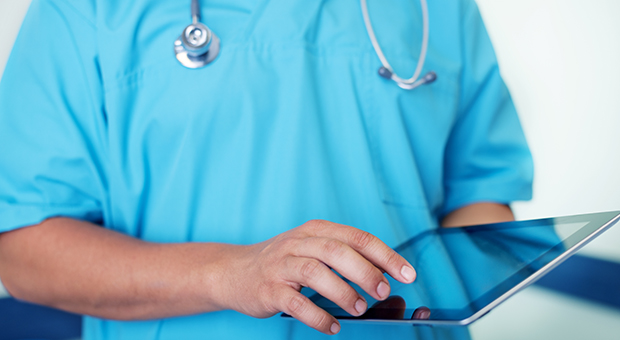The Medical Minute: Going mobile can be good for your health with the right apps

There was a time when smart phone users downloaded mobile applications – or apps – mostly to stay on top of social networking, get driving directions, or kill time by flinging Angry Birds.
But things have changed a lot since then.
These days, a number of popular applications make it easy to stay on top of your health by tracking calories and logging workouts.
As mobile apps increase in prevalence and sophistication, they are increasingly common in the medical world. Whether you want to monitor glucose or blood pressure or just need reminders to relax or take your medicine, there's an app for that.
“There is a clear shift toward the use of mobile technology for every industry, including healthcare,” says Dr. Chris DeFlitch, emergency department doctor and chief medical information officer at Penn State Hershey.
DeFlitch anticipates that in the near future, patients may use their smart phone apps to do things like capture heart rhythms or perform ultrasounds and transmit the data to their doctors. “It's going to change how we do things.”
Dr. Dennis Gingrich, family and community medicine, is just beginning to consider the use of mobile apps in his family medicine practice. He likes the convenience and flexibility they provide in allowing patients to take control of their own health.
“They are available for use whenever needed, can be accessed over time for long-term goals such as fitness or weight loss, and they can provide assessment or feedback in progress toward those goals,” he says.
Like anything else in the information age, users must be savvy about which apps they choose and how they use them. “Some are very reputable and validated by peers,” De Flitch says. “But there are tons put out there that are well-meaning but maybe not accurate.”
Dr. John J. Messmer, family and community medicine, reminds patients that medical care is much more than reading from a book, Web site or app: “It requires background education and experience to make good decisions.”
While apps that store medical information — breath flow rates for asthma patients or glucose levels for diabetics – can be convenient, Dr. Kristine Fortuna, orthopaedics, says there can be concern about who could potentially gain access to such information if it is stored on a phone or server, or transmitted through an unsecure connection.
Considering all that, here are a few of Penn State Hershey doctors' favorite apps:
I.C.E. (In Case of Emergency)
For iPhone/Apple devices: https://itunes.apple.com/app/ice/id284936201?mt=8
For Android: https://play.google.com/store/apps/details?id=com.appventive.ice&hl=en
This app holds emergency contact and health information to help emergency responders. With red-and-white or blue-and-white emergency symbols as their icons, they are easy for first responders to find.
MyFitnessPal
For multiple platforms: http://www.myfitnesspal.com/mobile
With an extensive database of foods, restaurants and exercises – as well as a barcode reader for packaged foods – this app allows users to track food and exercise.
Monterey Bay Aquarium Seafood Watch
For multiple platforms: http://www.montereybayaquarium.org/cr/seafoodwatch.aspx
With this app, users can identify good seafood choices – not just whether a population of fish is sustainably harvested, but whether eating a particular fish or seafood exposes a person to harmful pollutants or high levels of metals.
Crossfit Workout of the Day
For iPhone/Apple devices: https://itunes.apple.com/us/app/crossfit-workout-of-the-day/id317785373?mt=8
For Android: https://play.google.com/store/apps/details?id=com.gearley.xfitwod&hl=en
This app delivers a different workout each day to keep exercise from becoming boring.
Breathe2Relax
For multiple platforms: http://t2health.org/apps/breathe2relax#.UVSnfDdraBA
Here you can find instructions and practice for exercises that use the stress management skill of diaphragmatic breathing. Also provides information about the effects of stress on the body and allows users to rate their stress levels.
iAsthma in Control
For iPhone/Apple devices: http://www.mbtheme.com/WebApp/Medical/201005/iAsthma-in-Control_42542-42542.html
With this app, children who have asthma learn how to care for their condition – everything from what symptoms might mean an asthma attack is imminent to medicine reminders and access to a rescue plan and emergency contacts.
The Medical Minute is a weekly health news feature brought to you by Penn State Milton S. Hershey Medical Center. Articles feature the expertise of Penn State Hershey faculty physicians and staff and are designed to offer timely, relevant health information of interest to a broad audience.
If you're having trouble accessing this content, or would like it in another format, please email Penn State Health Marketing & Communications.
